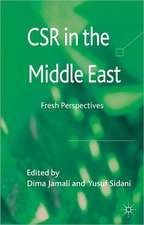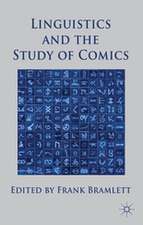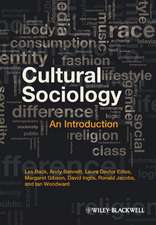Sentimentalism, Ethics and the Culture of Feeling
Autor M. Bellen Limba Engleză Hardback – 25 sep 2000
Preț: 642.68 lei
Preț vechi: 756.09 lei
-15% Nou
Puncte Express: 964
Preț estimativ în valută:
122.97€ • 128.74$ • 101.75£
122.97€ • 128.74$ • 101.75£
Carte tipărită la comandă
Livrare economică 07-21 aprilie
Preluare comenzi: 021 569.72.76
Specificații
ISBN-13: 9780333721100
ISBN-10: 0333721101
Pagini: 230
Ilustrații: X, 230 p.
Dimensiuni: 140 x 216 x 23 mm
Greutate: 0.48 kg
Ediția:2000
Editura: Palgrave Macmillan UK
Colecția Palgrave Macmillan
Locul publicării:London, United Kingdom
ISBN-10: 0333721101
Pagini: 230
Ilustrații: X, 230 p.
Dimensiuni: 140 x 216 x 23 mm
Greutate: 0.48 kg
Ediția:2000
Editura: Palgrave Macmillan UK
Colecția Palgrave Macmillan
Locul publicării:London, United Kingdom
Cuprins
List of Abbreviations Introduction: The Transformations of Sentiment 'Affective Individualism' and the Cult of Sentiment Feeling and/as Fiction: Illusion, Absorption and Emotional Quixotry Friedrich Schiller and the Aestheticising of Sentiment William Wordsworth: The Man of Feeling, Recollected Emotion, and 'the Sentiment of Being' Victorian Sentimentality: The Dialectic of Sentiment and Truth of Feeling Feeling as Illusion: Rousseau to Proust Modernism and the Critique of Sentimentality Henry James and D.H. Lawrence: 'Felt Life' and Truth to Feeling Conclusion: Literature, Criticism and the Culture of Feeling Notes Bibliography Index
Recenzii
'Michael Bell has long been our finest analyst of the 'culture of feeling', from the Eighteenth century to the present. No one has written with more insight on the concepts of sentiment and sensibility, or better understood the richly nuanced history of these words. Bell writes with a disciplined respect for ideas, a philosophic clarity and rigour rare among literary critics, and an alert wisdom. Like his previous books, Sentimentalism, Ethics and the Culture of Feeling shows exceptionally wide reading across all the major Western literatures, as well as a deep understanding of the English literary tradition. It is written with remarkable energy of mind and delicacy of perception, and with a powerful synthesising grasp of a rich body of literature.' - Claude Rawson, Maynard Mack Professor of English, Yale University
'Ranging from St Augustine through Diderot and Dickens to DH Lawrence, Michael Bell's elegant, lucid and jargon-free study charts the way in which fiction and feeling move and change through the centuries leading to modernity. Closely reading selected texts and alluding to many others, he has written with admirable clarity and contemporary relevance an History of the affective turn of Western culture, the massive modern investment in feeling and subjectivity. His book is a concise and consistently readable introduction to a complex and crucial subject.' - Janet Todd, Professor of English, University of East Anglia
'The entrenched habit of mind that sharply separates thought from emotional quality has come under increasing pressure of late from a number of different directions, but Michael Bell's magisterial study of the interdependence of feeling, imagination and principled discrimination in fiction and associated aesthetic thinking, from the 'sentimental' to the 'modern', establishes a new benchmark in the overcoming of this misleading dichotomy.' - Martin Warner, University of Warwick
'Michael Bell has written an unusual and unusually thoughtful - indeed, feelingful - book. It explores the fortunes of 'feeling' across a range of writings, British and European, from the eighteenth to the twentieth century, taking in along the way such figures as Sterne, Rousseau, Schiller, Wordsworth, Nietzsche, James, and Lawrence. But Bell's is neither a narrative history nor a series of critical essays. It is an argument, an argument about the forms of recognition and understanding that are inherently predicated upon emotional response, and an argument about the ways in which reactions against the eighteenth-century cultivation of 'sentimentalism' tended to drive all talk of feelings to margins of serious enquiry. In one sense, his book charts the return of feeling to the centre of the representation of experience, especially in the novel, but it is not a teleological or triumphalist story - there are, for example, some sharp words for the misplaced intellectualism of much contemporary criticism. In another sense,it is, like all good criticism, an attempt to make us see, and seeing the world through the spectacles provided by Bell's meditations on writers such as Schiller or Proust is also to see what a thin experience of it is given us by those forms of theorising which presume to restrict the cognitive to the conceptual. Specialists in several fields will be discomfited by this book, adherents of more than one critical approach may be resistant to it: these are indications of what a valuable book it is.' - Stefan Collini, Reader in Intellectual History and English Literature, University of Cambridge
'...a compelling history of narrative perspective and the development of its increasingly psychological dynamic...' - Chris Koenig-Woodyard, The Wordsworth Circle
'Ranging from St Augustine through Diderot and Dickens to DH Lawrence, Michael Bell's elegant, lucid and jargon-free study charts the way in which fiction and feeling move and change through the centuries leading to modernity. Closely reading selected texts and alluding to many others, he has written with admirable clarity and contemporary relevance an History of the affective turn of Western culture, the massive modern investment in feeling and subjectivity. His book is a concise and consistently readable introduction to a complex and crucial subject.' - Janet Todd, Professor of English, University of East Anglia
'The entrenched habit of mind that sharply separates thought from emotional quality has come under increasing pressure of late from a number of different directions, but Michael Bell's magisterial study of the interdependence of feeling, imagination and principled discrimination in fiction and associated aesthetic thinking, from the 'sentimental' to the 'modern', establishes a new benchmark in the overcoming of this misleading dichotomy.' - Martin Warner, University of Warwick
'Michael Bell has written an unusual and unusually thoughtful - indeed, feelingful - book. It explores the fortunes of 'feeling' across a range of writings, British and European, from the eighteenth to the twentieth century, taking in along the way such figures as Sterne, Rousseau, Schiller, Wordsworth, Nietzsche, James, and Lawrence. But Bell's is neither a narrative history nor a series of critical essays. It is an argument, an argument about the forms of recognition and understanding that are inherently predicated upon emotional response, and an argument about the ways in which reactions against the eighteenth-century cultivation of 'sentimentalism' tended to drive all talk of feelings to margins of serious enquiry. In one sense, his book charts the return of feeling to the centre of the representation of experience, especially in the novel, but it is not a teleological or triumphalist story - there are, for example, some sharp words for the misplaced intellectualism of much contemporary criticism. In another sense,it is, like all good criticism, an attempt to make us see, and seeing the world through the spectacles provided by Bell's meditations on writers such as Schiller or Proust is also to see what a thin experience of it is given us by those forms of theorising which presume to restrict the cognitive to the conceptual. Specialists in several fields will be discomfited by this book, adherents of more than one critical approach may be resistant to it: these are indications of what a valuable book it is.' - Stefan Collini, Reader in Intellectual History and English Literature, University of Cambridge
'...a compelling history of narrative perspective and the development of its increasingly psychological dynamic...' - Chris Koenig-Woodyard, The Wordsworth Circle
Notă biografică
MICHAEL BELL is Professor of English and Comparative Literary Studies at the University of Warwick. His recent publications include Gabriel Garcia Marquez: Solitude and Solidarity (1993), and Literature, Modernism and Myth: Belief and Responsibility in the Twentieth Century (1997).










